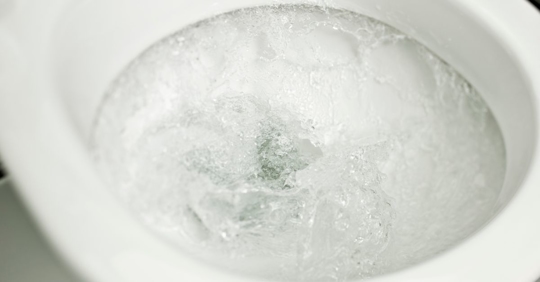Your toilet is designed to handle just a few specific things, and flushing the wrong items can quickly lead to clogs, pipe damage, and costly plumbing repairs. While certain products may claim to be “flushable,” the reality is that many of them can wreak havoc on your plumbing system and the environment. To help you avoid a plumbing disaster, here’s a comprehensive guide on what you should never flush down your toilet.
1. Wet Wipes
Even if a package is labeled as “flushable,” avoid sending wet wipes down the toilet. Unlike toilet paper, wet wipes don’t break down easily in water. Instead, they can accumulate in your pipes and contribute to severe clogs. This is especially true for baby wipes and cleaning wipes, which are thicker and contain fibers that don’t degrade.
Tip: Dispose of wet wipes in the trash instead of the toilet, no matter what the label says.
2. Feminine Hygiene Products
Tampons, pads, and other feminine hygiene products are not designed to break down in water. When flushed, they expand and can easily block your pipes or damage your septic system. These products are meant to absorb moisture, making them particularly problematic for plumbing systems.
Pro Tip: Always wrap and dispose of feminine hygiene products in the wastebasket to prevent potential issues.
3. Dental Floss
It may seem harmless, but dental floss is a big no-no for flushing. Made of nylon or Teflon, floss doesn’t biodegrade and can tangle around other debris, forming large clumps that clog your pipes. Over time, these clumps can even lead to more significant blockages in the sewer system.
Quick Fix: Toss used dental floss into the trash rather than flushing it down the toilet.
4. Grease, Oils, and Cooking Fat
Many people know not to pour grease or fat down their kitchen sink, but it’s just as crucial to keep these substances from entering your toilet. Grease and oils solidify as they cool, which can lead to stubborn clogs in your pipes. Over time, this buildup can compromise the entire plumbing system.
Advice for Prevention: Use a disposable container to collect grease and fat, then throw it away in the trash once it hardens.
5. Medications
Flushing medications down the toilet might seem like a quick way to dispose of them, but it poses significant risks. Pharmaceuticals can contaminate the water supply and harm aquatic life. Wastewater treatment plants aren’t equipped to remove all chemical compounds from medications, so they can end up in rivers and streams.
Safer Solution: Many communities provide medication take-back programs or designated disposal bins at pharmacies. Use these options for safe disposal.
6. Paper Towels and Tissues
Paper towels and tissues might look like toilet paper’s cousins, but they’re much thicker and less likely to break down in water. When flushed, these items can create blockages in your pipes and septic tank.
Better Option: Dispose of paper towels and tissues in the trash can rather than attempting to flush them.
7. Hair
Hair may seem small and harmless, but it acts like a net in your pipes, catching debris and soap scum. Over time, this can lead to drain blockages that are difficult to remove without professional intervention.
Preventative Measure: Use a drain cover in your bathroom to catch hair and keep it out of your plumbing system.
Call DB's Plumbing and Drain® for Plumbing Expertise
Your toilet and plumbing are vital parts of your home, and treating them with care can save you from costly repairs and headaches. Remember, your toilet isn’t a trash can, and flushing the wrong items can spell disaster for your pipes, septic systems, and the environment.
If you’ve already encountered issues or suspect something’s wrong with your plumbing, don’t wait! Contact DB's Plumbing and Drain® today. Our team of licensed professionals can quickly diagnose the problem and provide reliable solutions to keep your home running smoothly. Give us a call—we’re here to help!

